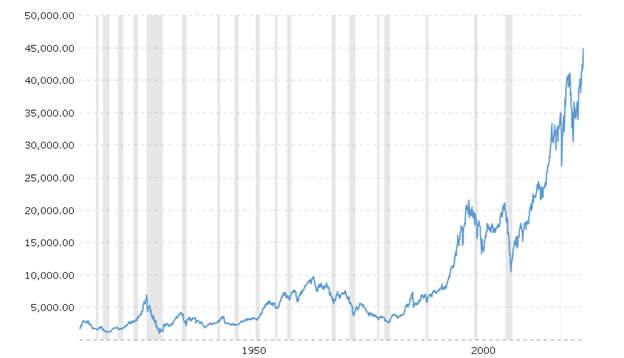
Pricey buddies,
Planting bushes is a enterprise into the long run, it’s a handheld out to different generations.
Mirabel Osler
Embracing Chaos: Reflections on Progress Amidst Uncertainty
As I sit down to jot down this month’s letter, I’ve been wandering round my backyard considering what an unsalvageable mess it’s: an unlovely and unidentifiable tangle of lifeless stems, fall leaves, stubble, trash mysteriously blown in, and the occasional corpse. (Sometimes avian.) It’s onerous to not despair of it. And, onerous to not think about parallels to the political world.
 British gardeners excel at quirkiness. Even amongst them, I may think about that Mirabel Osler (1925-2016) ranked within the prime tier. Mirabel Osler crafted an unconventional path in gardening and writing, coming to each later in life. She lived in Thailand, the place she adopted her son, and Corfu, then returned to England. After her husband’s loss of life, she reworked their Shropshire backyard into what she known as “managed chaos,” integrated snails (which most relentlessly extirpate) into the plan, joked about not letting god know that she was enjoying god, and, at 64, wrote A Light Plea for Chaos (1989), which advocated for letting crops develop naturally moderately than forcing them into synthetic preparations.
British gardeners excel at quirkiness. Even amongst them, I may think about that Mirabel Osler (1925-2016) ranked within the prime tier. Mirabel Osler crafted an unconventional path in gardening and writing, coming to each later in life. She lived in Thailand, the place she adopted her son, and Corfu, then returned to England. After her husband’s loss of life, she reworked their Shropshire backyard into what she known as “managed chaos,” integrated snails (which most relentlessly extirpate) into the plan, joked about not letting god know that she was enjoying god, and, at 64, wrote A Light Plea for Chaos (1989), which advocated for letting crops develop naturally moderately than forcing them into synthetic preparations.
It’s a brief guide although, in fact, I feel it will have been higher as a pamphlet or an hour-long dialog over dinner.
Right here’s the argument: nature is chaotic, which is gorgeous and obligatory. Chaos, in its essence, is just not inherently damaging—it’s a power that may both nurture development or sow havoc, relying on how we interact with it. People, and human areas similar to gardens, want to understand that and take care of it. The interaction of sunshine, soil, and seed creates one thing much more resilient and alive than any meticulously deliberate association. She attracts a distinction between the type of chaos that breathes life right into a system—productive chaos—and the type that tears it aside, which we’d name havoc.
In nature, productive chaos is the storm that clears deadwood, making manner for brand new development. It’s the unpredictable interaction of species that fosters biodiversity and resilience. Havoc, however, is the invasive species that chokes out life, the erosion that strips the soil of its vitality. The distinction lies within the consequence: one creates the circumstances for renewal, whereas the opposite leaves solely destruction in its wake.
This distinction feels notably related at this time. The political chaos we’re witnessing may very well be seen as a type of havoc—a power that threatens to erode belief, destabilize establishments, and deepen divisions. But, inside this turmoil, there may be additionally the potential for productive chaos: the chance to reexamine outdated methods, to problem entrenched norms, and to domesticate new methods of considering and being. Simply as a backyard thrives when it embraces a level of wildness, societies and economies can discover energy in adaptability and innovation.
This isn’t to reduce our present anxieties. However simply as a backyard’s obvious chaos conceals complicated methods of resilience, our democratic establishments have deep roots and a number of layers of resistance to authoritarian impulses. Impartial courts assert their authority. Civil servants preserve their skilled ethics. Worldwide relationships, constructed over many years, show extra resilient than any particular person’s declarations. Markets, like nature, have a manner of routing round harm and discovering new paths ahead.
As traders, we are not any strangers to chaos. Markets, like ecosystems, are dynamic and unpredictable. But, it’s exactly in these moments of uncertainty that probably the most compelling alternatives typically emerge. This can be a pivotal second. The secret’s to discern between the chaos that indicators transformation and the havoc that portends decline.
Till we’ve a deal with on how far the repercussions will unfold, we’ve two units of suggestions.
For people born since 1990 or so, take a deep breath.
See that broad blue-gray bar over towards the left? That was the Nice Despair and the rise of Hitler’s empire. Arguably, the worst interval in world historical past because the Darkish Ages. Twenty-five years later, it was left within the mud. Faster, should you’d continued investing in a diversified portfolio. Each subsequent catastrophe has recovered in a couple of decade. Most likely the perfect use of your time simply now is just not guessing in regards to the market or gaming Bitcoin. Concrete actions:
- Fund your emergency account – actually, figuring out that you just’ve bought the subsequent two to a few months’ value of payments lined buys a variety of peace of thoughts. My portfolio makes use of RiverPark Quick Time period Excessive Yield for that position, however Schwab has a bunch of cash market funds yielding over 4% simply now.
- Don’t make bets on markets – bear in mind the adage, “The home at all times wins.” Discover a boring funding – high-quality shares, short-term high-yield bonds – that makes long-term sense for you however is soooo boring. Make investments modestly and frequently. Look in on it about every year.
- Obsess about politics provided that you select to interact in politics – that’s, doom-scrolling carries an unlimited psychological price. Should you’re utilizing your heightened vigilance to plan motion, that’s nice. Should you’re merely hooked on the horror style, it’s time to step away out of your feed. Valentine’s Day impends. Why don’t you observe down a brand new recipe, analysis some cool dinner music, discover a buddy, make a buddy, invite a buddy (or buddies), and hug them? That’s a simplified model of sound psychological recommendation.
For these of us with shorter time horizons, we’d contemplate 5 rapid actions:
- Don’t rely on the inventory market – valuations are at epic ranges, with speculative funds like ARK Innovation ETF popping up 10% within the month of January, excess of the 2-3% beneficial properties of extra mainstream market indexes. Such markets are typically extremely fragile.
- Choose high quality over momentum – “momentum” comes right down to “what was working will proceed working,” which has been an intermittently disastrous assumption. Whereas high quality not often soars, it additionally is often underpriced and resilient.
- Contemplate a small place in a hedge-like fund – they are typically costly and few have justified their existence, however we’ve tracked a handful of well-run funds which have succeeded with hedged fairness positions or with a managed futures technique that makes use of very short-term indicators to brief falling courses whereas investing in rising ones. Standpoint Multi-Asset fees 1.49% with a five-year return of 12%, a beta of 23, and a draw back seize of twenty-two. Dynamic Alpha Macro, in the meantime, weighs in with a 1.98% e.r. however booked prime percentile returns in its Morningstar peer group throughout its first 12 months of operation. The argument right here is straightforward: it’s far simpler to stay calm and centered when one thing in your portfolio is holding up because the little voice in your head shouts “run! Run! Runnnnn!”
- Don’t rule out bonds as a competitor to shares – whereas I’m skeptical of debt-weighted bond index funds, Lynn makes a powerful argument for the asset class simply now.
- Fund your emergency account – actually, figuring out that you just’ve bought the subsequent two to a few months’ value of payments lined buys a variety of peace of thoughts. My portfolio makes use of RiverPark Quick Time period Excessive Yield for that position, however Schwab has a bunch of cash market funds yielding over 4% simply now.
 Even within the wildest of gardens, there’s a quiet order beneath the floor—a reminder that life, in all its complexity, finds a approach to flourish.
Even within the wildest of gardens, there’s a quiet order beneath the floor—a reminder that life, in all its complexity, finds a approach to flourish.
On this month’s Observer …
In “The Rising Tide of Water Infrastructure: A Information for Strategic Buyers,” I comply with up on ideas from MFO dialogue neighborhood members to acknowledge the distinctive alternatives provided by investments focusing on water infrastructure.
“The Indolent Portfolio, 2024” is the newest set up in my annual portfolio disclosure. It gives ideas for how one can construct a low-maintenance portfolio and a three-fund various to my admittedly sprawling collections. (PS, the portfolio itself did simply advantageous final 12 months.)
Our colleague Lynn Bolin does a kind of fixed-income tour de power with three associated articles. “Revenue Funding Technique for 2025” highlights issues about excessive inventory valuations, persistent inflation, and expectations of “larger for longer” rates of interest. Lynn discusses his private portfolio changes, decreasing inventory publicity to 60% and emphasizing income-generating investments. The article presents a considerate strategy to constructing a diversified bond portfolio with a mixture of core bonds, bond ladders, municipal bonds, and high-yield choices.
“Trying to find Excessive Tax-Exempt Yield” is an exploration of municipal bond funding alternatives throughout completely different danger classes. Lynn examines 5 Lipper municipal bond classes, analyzing their risk-adjusted returns and tax benefits. He supplies detailed comparisons of assorted municipal bond funds, from low-risk short-term choices yielding round 3% to higher-risk choices yielding round 4%. The piece consists of sensible tax issues and explains when municipal bonds may be applicable for various investor profiles.
Lastly, “Trying to find Yield in All The Secure Locations” is a complete evaluation of eight Lipper bond fund classes, specializing in discovering larger yields whereas managing danger. Lynn develops a rating system combining a number of components together with danger, yield, return, high quality, pattern, and tax effectivity. He notably highlights mortgage participation funds, discusses numerous high-yield choices, and supplies an in depth evaluation of particular fund suggestions inside every class.
Throughout all of them Lynn builds upon a recognition of the present “larger for longer” rate of interest surroundings and leverages the highly effective instruments at MFO Premium to generate analyses at each the funding class and fund degree. He shares a powerful give attention to danger administration whereas looking for yield with cautious consideration to tax effectivity in fixed-income investing.
The Shadow, as at all times, gives his “Briefly Famous” recap of the business’s twists together with the rising tide of energetic ETFs and ETF conversions and the magnitude of the retreat from sustainable investing.
Thanks, as ever …
To our trustworthy “subscribers,” Wilson, S&F Funding Advisors, Greg (I hope I can proceed to talk to realities past portfolios and the passing storms), William, William, Stephen, Brian, David, and Doug, thanks!
To Andrew from Akron and Krishna from Skokie, thanks! And for extra than simply monetary assist. You make a distinction.
Giving again, paying ahead …
The parents at MFO don’t get common monetary compensation for the work they share with you. Chip and I do have a look at the books on the finish of every 12 months to see what we will, in good conscience share with the oldsters who make MFO attainable. We’re modestly within the purple however have constructed sufficient of a reserve that we have been happy to supply a small honorarium to our colleagues. And happy, although not stunned, once they requested that we divert it as an alternative to these whose wants are larger than ours.
Lynn really helpful that we make a contribution to Habitat for Humanity in honor of the late President Carter. Now we have carried out so.
The Los Angeles fires have slipped from the entrance pages and lead tales, however three main fires rage on – one uncontained – and tons of of 1000’s nonetheless face the problem of reassembling lives. The “Casual Economist,” buddy and long-time contributor to the Mutual Fund Observer neighborhood shared an interesting Guardian article, “GoFundMe, Mandy Moore and the unfairness of disaster relief.” The gist: GoFundMe and plenty of self-aid tasks are regressive; support flows primarily to catastrophe victims who’re wealthy as a result of their social circles are wealthy people and their appeals go dwell instantly and easily. Poor people, identified largely to different poor people, get ashes. Authorities support, tied to property values, has the identical unintended impact.
The article hyperlinks to an intriguing useful resource, the Black Families (also Latino, Filipino, disabled, and musicians) GoFundMe listing. It permits you to discover and assist households far exterior your circle. Chip and I contributed to a number of households. At a time when there’s a variety of darkness obtainable to curse, we thought it sensible to gentle a candle.
A extra standard strategy: test Charity Navigator’s “LA Fires” web page for a dozen highly-rated charities, together with a quantity supporting deserted pets. No matter your alternative, you can also make a distinction.
Extra broadly, we predict it sensible to assist unbiased journalism. The phrase “Should you give individuals gentle, they’ll discover their very own manner” is attributed to Dante Alighieri. The best approach to assist journalism is to give up to the core capitalist impulse: pay for what you need! Subscribe. Information is just not free. You pay for each phrase of it. You probably have a paid subscription, you’re controlling who earnings and may perceive their biases. The Guardian does good work from a non-US perspective and permits you to pay what you want. ProPublica does the onerous work of investigative journalism that’s picked up by others. The Conversation publishes solely the work of subject-area specialists, overlaying every little thing from hip-hop to homelessness. The National Review, based by William F Buckley Jr in 1955, has a protracted and loud custom of unyielding, principled conservatism. Our personal subscriptions – to The Wall Avenue Journal, The New York Occasions, Monetary Occasions, Shopper Stories, and others – mirror that crucial.
As ever,

